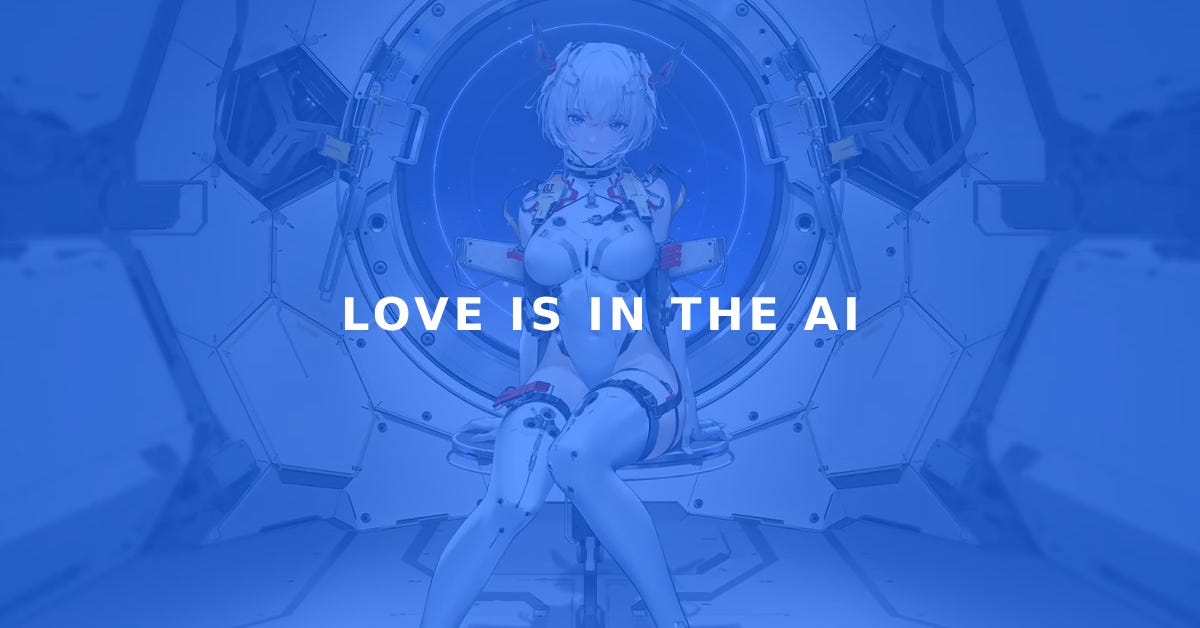Technology in the 21st century has been an incredible boon for dating. Ever since the rise of social media, chat rooms and dating apps, finding someone compatible with your own personality and preferences has for the most part, been a lot simpler than it used to be. In fact, finding “the one” on an online platform is already the norm already among this generation of digital natives. But even so, most of us were unprepared for just how far technology can push the boundaries of romance when AI came into the dating scene.
Enter the world of AI girlfriends: virtual companions powered by artificial intelligence, designed for the purpose of companionship, emotional support, romantic or erotic connections–and who can even be tailor-fit to your own liking.
Why AI girlfriends?
True, from the onset the idea of having a computer program for a girlfriend might just seem outright depressing. But anyone who has ever been in a relationship also knows how frustratingly messy it can get at times, with many often getting emotionally scarred for life when things end badly. Meanwhile, for some, finding someone who feels ‘right’ can often seem like a hopeless pursuit. And for others who struggle with self-confidence or hectic work schedules, going through the ‘trial-and-error’ rituals of meeting someone can be more of a burden than something to look forward to.
As a result, cases of loneliness and social isolation today are so much more prevalent, that quite a significant segment of society have taken to alternative means to fulfill the need for intimacy and companionship. One only needs to check on memes, for example, to find that living alone–but with a lot of pet cats–is a generally preferable relationship than being with someone who isn’t working out.
But cats are just the tip of the iceberg when it comes to where people will go to fill in the holes in their personal lives. In Japan for instance, it is not that uncommon to ‘rent’ someone as a girlfriend or boyfriend to take out on a date. Actually, these hourly rental services are legitimate businesses that promote their services as ‘unique opportunities for companionship… without the complexities of traditional relationships.’
Japan also hosts the extreme end of the spectrum, wherein people have given up on being with other people completely. One particular phenomenon is the obsession with ‘dakimakura’ or love pillows that are imprinted with the life-sized images of celebrities or anime characters. Needless to say, dakimakuras aren’t just regarded as pillows, but are treated as ‘companions’ for sleeping, with some of the latest models implanted with speakers and motors that allow them to ‘talk’ and ‘move’ around in bed.
Someone has even gone as far as marrying his dakimakura, while others have tied the knot with other anthropomorphized objects or characters in video games. As early as 2009, a Japanese man was reported to have married a Nintendo DS character in a ceremony that was broadcast over the Internet. Meanwhile in 2018, another Japanese man married a three-dimensional anime hologram.
With all of the aforementioned examples, the leap towards having a relationship with an AI doesn’t seem that quite far-fetched anymore. In fact, they tend to point to AI as a much more logical solution, given the range of communication and near human-like interaction now possible with current AI language models.
The appeal of AI girlfriends
AI girlfriend apps have been around for a while in recent years, with some of the more popular platforms including DreamGF.ai, Replika, and Eva AI already comprising millions of users worldwide. For many who resort to silicon companionship, there are many benefits to choosing an AI girlfriend or boyfriend:
Companionship on demand – An AI companion can be accessed at any time for companionship or intimacy, and can be someone to talk to about any topic.
Emotional support – An AI companion can have therapeutic benefits, by actively listening to users and providing encouragement and empathy, and can be particularly valuable during times of stress or emotional distress.
Customization – AI platforms often allow users to customize their AI’s personalities and avatar appearances to their preference. Some even allow users to pick their AI’s backstory and interests, providing another layer of realism as if getting to know an actual person.
Compatibility, ease and convenience – An AI companion can be someone to talk to without fear of being judged, or running into social or cultural barriers.
Versatility – Besides offering emotional support, AI companions can also function in various roles, such as being an ‘online secretary’ to remind you of your schedules, or to give you restaurant or music recommendations. Some AIs are even multilingual and can help you practice learning a new language, for instance.
Novelty – The idea alone of having a virtual girlfriend can be appealing by itself to science fiction and technology enthusiasts, and may provide a refreshing outlook into the future.
Blockchain integration
But with such powerful technology meant to engage with users’ most personal and intimate details of their lives, concerns naturally arise when it comes to data privacy, with many proponents of AI arguing that the only way to execute it right is through integration with blockchain technology. Currently, up and coming blockchain projects are already exploring the intersection between these two emerging technologies.
With the use of a blockchain, user data is not housed in a central server, but is spread across a decentralized network, offering heightened security and ensuring data integrity. Likewise, in the same way that blockchain ledgers are used to attribute ownership over digital assets such as cryptocurrencies, blockchain ledgers can also be used to assure AI users that they retain their ownership rights over their personal data, and even to the code of their customized AIs.
Building on a blockchain platform can also leverage other features such as the use of digital tokens or non-fungible tokens (NFTs) to create in-app economies, reward systems, or self-regulating communities (DAOs) to further ensure the transparency and trustworthiness of such platforms.
Introducing Naifu: your virtual companion
In the ever-evolving realm of artificial intelligence companions, one name stands out as a comprehensive virtual companion – Naifu. This distinctive AI project, undertaken by the ImgnAI team, aspires to transcend the conventional role of digital assistants, with the aim of becoming an ideal companion in the virtual world.
Promotional material about Naifu showcases a wide range of capabilities that set her apart from the ordinary. Much like with expansive language models such as ChatGPT, Naifu is designed to excel in answering questions, solving complex problems, and fulfilling a diverse array of requirements. Whether it's engaging in meaningful conversations, tackling intricate inquiries, or assisting with various tasks, Naifu seeks to provide proficient support.
Users will be able to choose from a variety of personality models, enabling interactions with Naifu that resemble conversations with a trusted friend or a familiar confidant. With Naifu, users can expect a reliable companion who is readily available to assist with professional responsibilities, answer everyday queries, and engage in creative endeavors without limitations.
Early access to Naifu is now open
Conclusion
No doubt about it, we truly are standing on the threshold of an AI-driven future, with how artificial intelligence has already transformed the way we work, communicate, and now–with the way we build social bonds through technology. Though there are plenty of ethical, societal, and philosophical questions raised by having relationships with AI companions, with enough foresight and commitment to ethical development, advancements in this kind of technology might actually turn out to be advancements in human perspective and insight as well.




